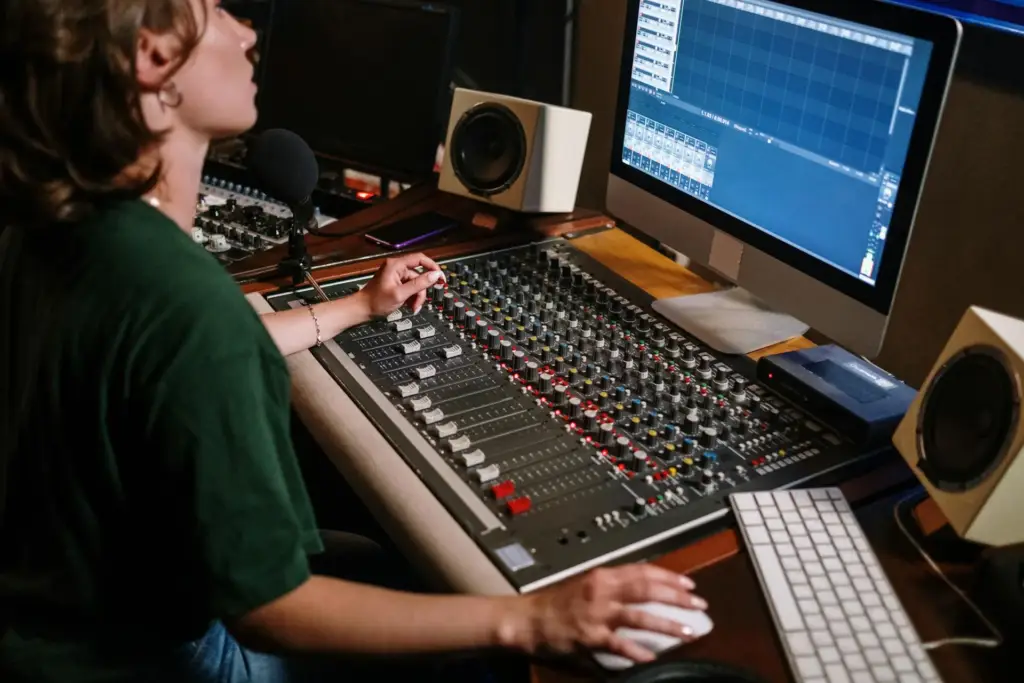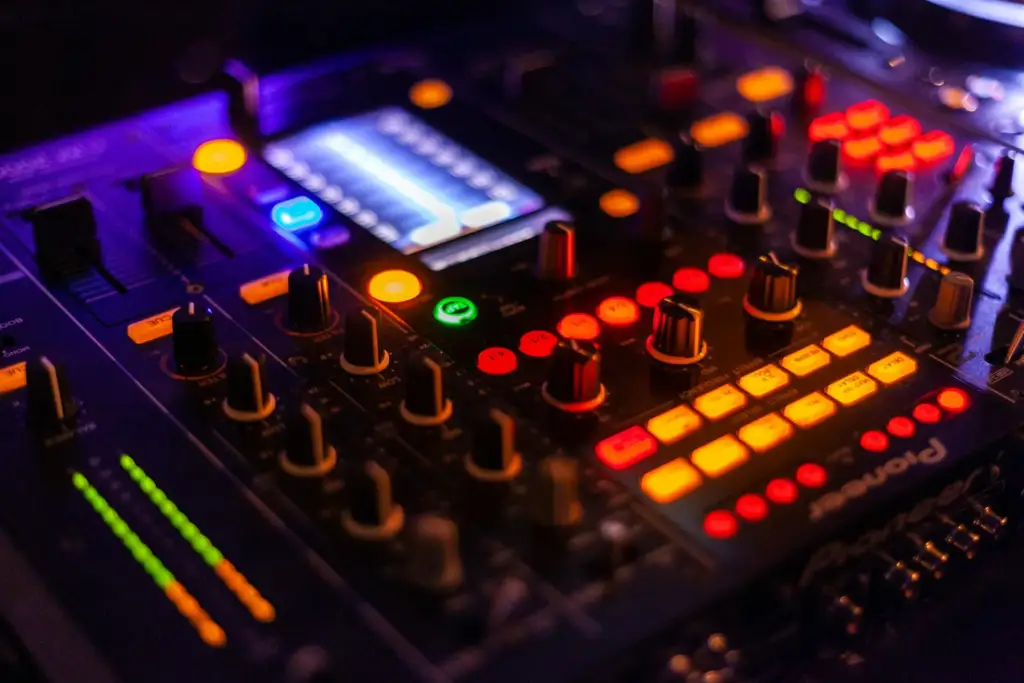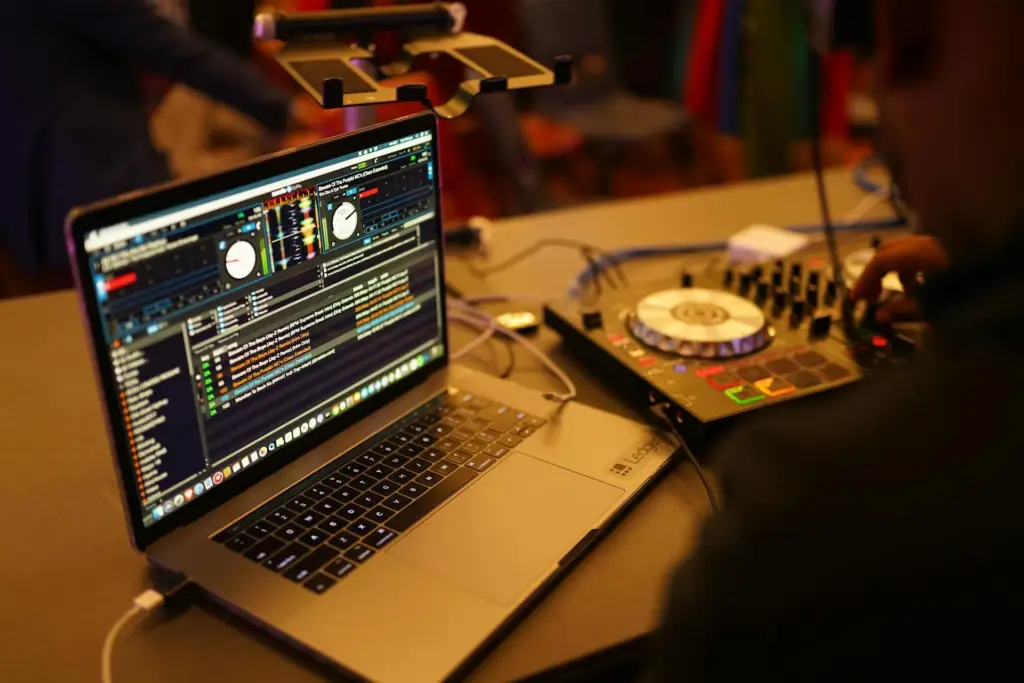AI Generated Music is transforming the music industry at an astonishing speed. Technological innovations have enabled artificial intelligence to actively participate in the creation, production and customization of music, opening up new creative possibilities for both professional and amateur musicians. In this article, we explore current tools, prominent examples, and what the future might hold for AI Generated Music.

Tools for AI Generated Music
There are several tools and platforms that are revolutionizing the way music is composed and produced. These tools use advanced algorithms to analyze musical patterns and generate original compositions.

OpenAI Jukebox: OpenAI has developed an AI tool called Jukebox that can generate complete music in different genres and styles. Jukebox not only creates melodies, but can also write lyrics and generate vocals that mimic specific artists.
Amper Music: Amper is an accessible platform that allows anyone, even without musical knowledge, to create custom compositions. Users can choose the style, tempo and pitch, and Amper generates a complete music track in minutes.
AIVA (Artificial Intelligence Virtual Artist): AIVA is an AI composer that creates original music for soundtracks, video games and other multimedia projects. It has been used in commercial projects and is capable of composing pieces in classical and modern styles.
Magenta: Developed by Google, Magenta is a tool that explores the use of AI in the creative process, allowing users to experiment with generating music, art and other types of creative content.
These tools not only facilitate the music creation process, but also allow artists to explore new sounds and styles that they might not have considered before.
Examples of AI Generated Music
AI Generated Music has already made its mark in the music industry, with several notable examples showing the potential of this technology.
- Taryn Southern’s Album “I AM AI ”: Taryn Southern, an artist and producer, released the first AI co-created album in 2017. It used Amper Music to generate the instrumental tracks, while she handled the lyrics and vocal performance.
- Bach AI: In 2019, a team of researchers used AI to compose a piece in the style of Johann Sebastian Bach. The AI was trained on the Baroque composer’s works and generated a composition that was performed by a live orchestra, demonstrating how technology can replicate the style of classical composers.
- Endel: This generative music app uses AI to create personalized soundscapes that adapt to the time of day, the user’s mood and other variables. Endel has collaborated with artists such as Grimes to create unique listening experiences.
The Future of AI Generated Music
The future of AI Generated Music appears to be full of opportunities and challenges. As the technology continues to advance, we are likely to see even greater integration of AI into the creative process.

- Extreme Personalization: With AI Generated Music, listeners could have access to instantly personalized music tailored to their individual preferences, moods and specific situations. This could lead to a much more immersive and personalized listening experience.
- Human-Machine Collaboration: AI will not replace musicians, but will become a powerful tool for collaboration. Composers and producers will be able to use AI to explore new ideas, improve production efficiency, and experiment with styles they might not otherwise have considered.
- New Business Models: As AI Generated Music becomes more popular, new business models could emerge in the music industry. This could include subscriptions to generative music services, where users pay for access to personalized AI-created music, or new ways to monetize music creation through AI platforms.
- Ethics and Originality: A key challenge going forward will be the question of originality and copyright. Who owns the rights to an AI-created composition? Is it truly original or simply a mash-up of existing data? These are questions that the industry will need to address as AI Generated Music becomes more commonplace.
Conclusion
AI-generated music is redefining what it means to create music in the 21st century. With innovative tools, inspiring examples, and a future full of possibilities, artificial intelligence is making its mark on the music industry. However, with these advances come new challenges, both ethical and creative, that the industry will have to face.
As AI Generated Music continues to evolve, we are likely to see a greater fusion of human creativity with artificial intelligence, which could lead to new forms of artistic expression and listening experiences never before imagined. AI-assisted music not only expands creative possibilities, but also democratizes music creation, allowing more people to participate in the creative process, regardless of their technical skills or previous experience.

